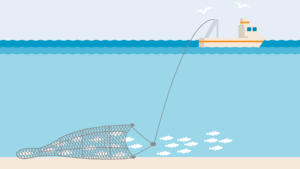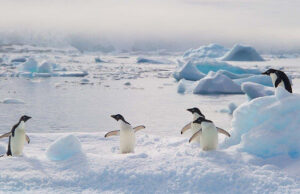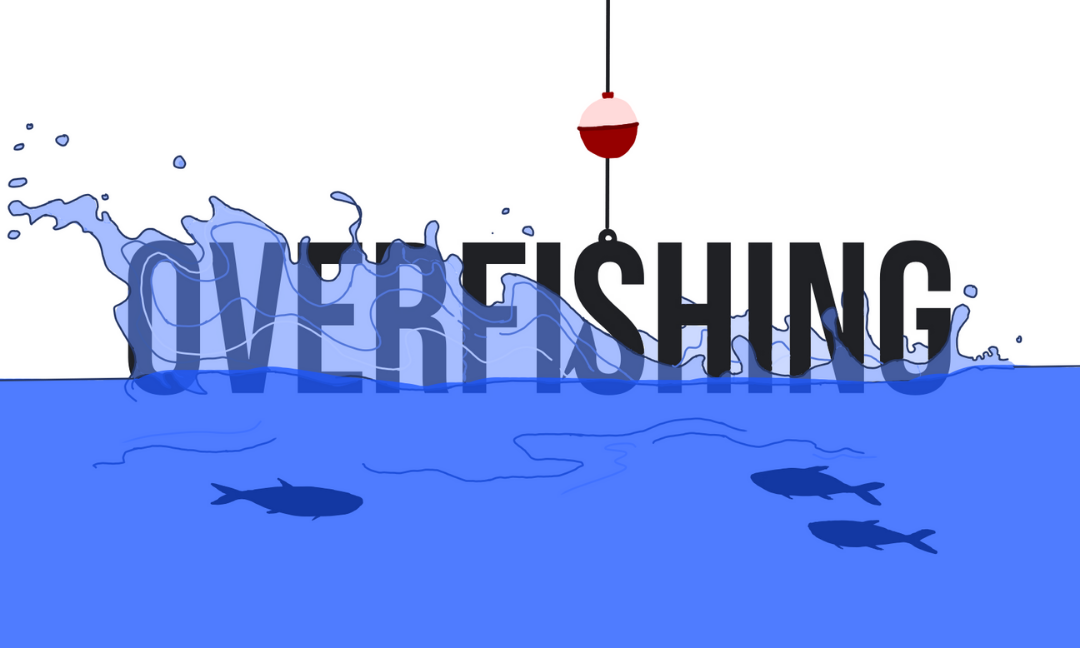Written by: Mehavi Jeyabalan
Overfishing has been a problem since the 1800s and continues to be one of the most significant environmental issues today. According to a study, there will be no more fish in the ocean by 2050 if the world proceeds to overfish. As this issue takes a turn for the worse, it can potentially change life drastically as we know it.
To prevent the situation from worsening, we must be aware of the causes to come to a solution. The reason may seem simple, but there is more than what meets the eye, just like the ocean. The first most notable factor is unsustainable fishing. I like to define it as fishing disobeying science, but in specific terms, it’s a higher amount of fish caught that doesn’t support the ocean or population of fish. Another part of this problem is bycatch, which is the capture of unwanted species. These undesired fish get thrown back into the water, usually on the verge of death or already there. The second cause is harmful fishing gear. It harms habitats and increases the chances of bycatch occurring. You may be surprised by the bizarre contraptions people use to catch fish. The last well-known reason is IUU fishing. It stands for illegal, unreported and unregulated. As you can guess, this cause is about ignoring laws and measures made to protect the ocean and its inhabitants.

However, we cannot solely blame fisheries when Canada doesn’t have proper laws and regulations regarding overfishing. An example is not having a legal requirement to promote sustainable fishing. Another one is not needing reports on the amount of fish killed. Adding to this, having no national policy on using safer fishing gear. Some of the fishing gear used in Canada include trawls, longlines and dredges. To understand the uses or harm caused by these types of equipment, we need to dive a bit deeper. Trawling, more commonly known as bottom trawling, drags along the ocean floor, wrecking anything it touches, such as habitats and other sea life. Trawling isn’t only meant for the ocean floor and is used above it too. Next are longlines, which are fishing lines with many individual baited hooks attached to the main lines. The problem with this gear is unique. It lures various species, including animals that aren’t fish, for example, birds. When these other animals fall into the trap, they are severely wounded or dead. The last type of equipment to mention is dredges. These are steel cages that get dragged across the ocean floor as well. There are also different models of this gear, for example, the hydraulic dredge that shoots water. Thankfully, illegal fishing is the least likely to happen as no one would want to break a fishery law.

In addition to fish hanging on the verge of survival, other animals are being forced to fight for their lives too. As we cause more species to become extinct or endangered, animals that rely on them as food also become affected. When we sever the links in the food chain, we can say goodbye to more than the fish. An example occurred where penguins starved to death due to the frequent and high quantities of squid being caught. We need to make smarter choices to make our world livable for everyone, especially animals who have suffered too much at the hands of humans.
After reading all this, I know what you’re thinking, “How do we save our oceans?”. We can encourage the government and the people in the industry to create change by presenting ideas such as having more marine protected areas, banning trawling, and implementing catch shares. Catch shares are a system meant to protect fish and allow them to reproduce to have stable populations. This will prevent them from getting fished to extinction. Some ways you can involve yourself more directly are educating others, supporting campaigns and organizations, and making smarter consumer choices. Examples of better consumer decisions are buying locally, avoiding larger fish, and avoiding farmed fish.
It may be easy to ignore this issue as we have the privilege of living on land, but you can guarantee it will cause more damage to ignore it. After all, if the ocean dies, we die with it.
Sources
https://oceana.ca/en/blog/whats-causing-overfishing-canada
https://cwf-fcf.org/en/resources/for-educators/resource-sheets/overfishing-damage-to.html
https://therevolutionmovie.com/index.php/open-your-eyes/overfishing/solutions/
https://oceana.ca/en/blog/how-seafood-caught-look-fishing-gear-types-canada


We absolutely love your blog and find almost all of your post’s to be just what I’m
looking for. Does one offer guest writers to write content to suit your needs?
I wouldn’t mind publishing a post or elaborating
on most of the subjects you write regarding here.
Again, awesome blog!